
Miramar: The Scenic Heartbeat of Luanda
Nestled in the bustling capital city of Luanda, Miramar offers a unique blend of cultural charm, modern amenities, and captivating scenery. This neighborhood is a haven for tourists seeking an authentic Angolan experience paired with the comforts of urban living. From its picturesque views of the Atlantic Ocean to its vibrant streets filled with local markets and eateries, Miramar is a destination that promises a memorable stay. Explore the rich history of the area by visiting the iconic Fortaleza de São Miguel, a fortress that offers panoramic views of the city and the ocean, while also providing insight into Angola’s colonial past. The National Museum of Anthropology, located nearby, showcases the diverse cultural heritage of Angola with its extensive collection of artifacts and exhibits. Food lovers will find Miramar a gastronomic delight, with a variety of restaurants offering both traditional Angolan dishes and international cuisine. Don't miss out on the local seafood, which is as fresh as it gets. For those looking to unwind, the neighborhood's beachside promenades provide the perfect setting for a leisurely stroll, while the vibrant nightlife ensures that there is always something to do after the sun sets.
Local tips in Miramar
- Visit Fortaleza de São Miguel early in the morning to avoid crowds and enjoy the best views.
- Try the local seafood at one of the neighborhood's many seaside restaurants.
- Wear comfortable shoes as the streets can be quite hilly and require a fair bit of walking.
- Take a guided tour of the National Museum of Anthropology to gain deeper insights into Angolan culture.
- Carry local currency (Kwanza) as some smaller vendors may not accept credit cards.
Miramar: The Scenic Heartbeat of Luanda
Nestled in the bustling capital city of Luanda, Miramar offers a unique blend of cultural charm, modern amenities, and captivating scenery. This neighborhood is a haven for tourists seeking an authentic Angolan experience paired with the comforts of urban living. From its picturesque views of the Atlantic Ocean to its vibrant streets filled with local markets and eateries, Miramar is a destination that promises a memorable stay. Explore the rich history of the area by visiting the iconic Fortaleza de São Miguel, a fortress that offers panoramic views of the city and the ocean, while also providing insight into Angola’s colonial past. The National Museum of Anthropology, located nearby, showcases the diverse cultural heritage of Angola with its extensive collection of artifacts and exhibits. Food lovers will find Miramar a gastronomic delight, with a variety of restaurants offering both traditional Angolan dishes and international cuisine. Don't miss out on the local seafood, which is as fresh as it gets. For those looking to unwind, the neighborhood's beachside promenades provide the perfect setting for a leisurely stroll, while the vibrant nightlife ensures that there is always something to do after the sun sets.
Iconic landmarks you can’t miss
Fortaleza de São Miguel
Discover the historic Fortaleza de São Miguel, a stunning fortress in Luanda offering breathtaking views and rich cultural insights into Angola's past.
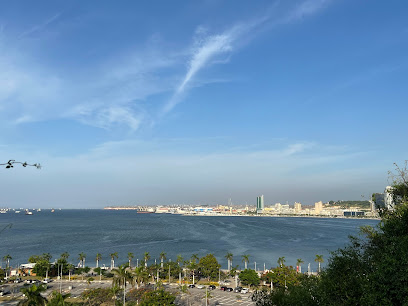
Miramar Park
Escape to Luanda's Miramar Park: A serene urban oasis with lush greenery, walking paths, and recreational spaces for all to enjoy.
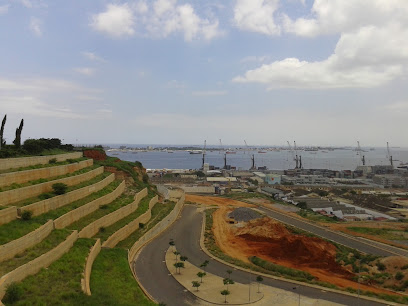
InterContinental Luanda Miramar, an IHG Hotel
Experience world-class luxury with stunning views and exceptional service at Luanda's premier five-star hotel in the heart of the Miramar district.
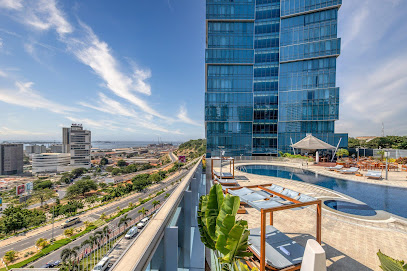
Museu da Moeda
Explore the Museu da Moeda in Luanda for an enriching journey through Angola's monetary history and economic evolution.
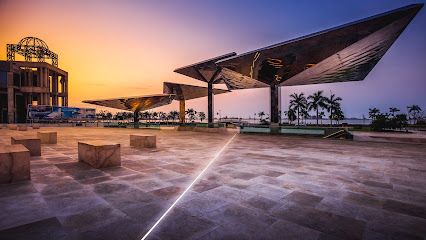
Museum of Natural History
Discover the fascinating biodiversity and cultural heritage of Angola at the Museum of Natural History in Luanda, a unique tourist attraction.
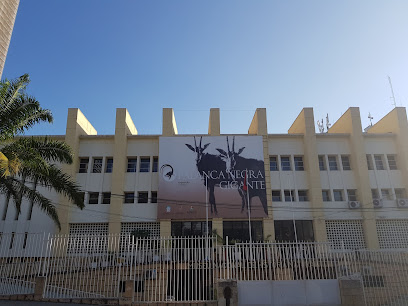
Hamburg's Miramar
Experience a delightful culinary journey at Hamburg's Miramar in Luanda, where local flavors meet international cuisine in a welcoming atmosphere.
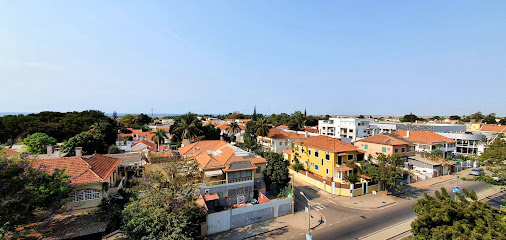
Lighthouse Island
Experience the breathtaking beauty and rich maritime heritage of Lighthouse Island in Luanda, a captivating destination for every traveler.
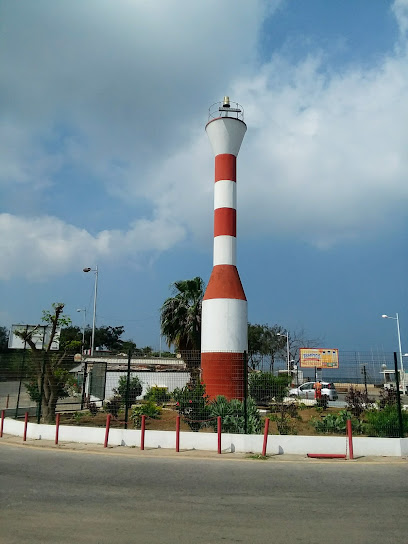
Luanda Magica
Discover the lush beauty of Luanda Magica, a serene park in Angola perfect for relaxation, family outings, and outdoor activities amidst nature.
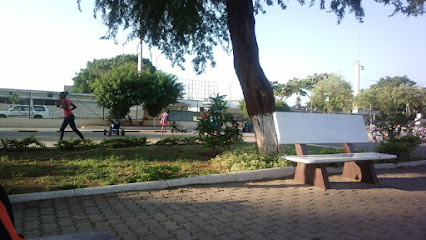
Monumento O Soldado desconhecido
Explore the rich history of Angola at Monumento O Soldado Desconhecido, a powerful tribute to the nation's heroes and a centerpiece of Luanda's cultural landscape.
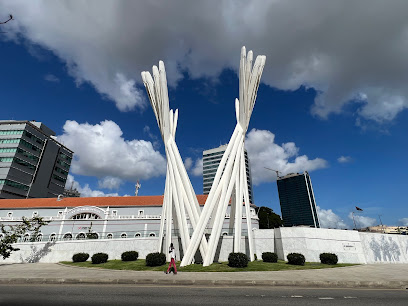
Nossas Coisas
Experience diverse flavors in a cozy setting at Nossas Coisas, a celebrated restaurant in Luanda's Ingombota, offering pizza, sushi, and Angolan cuisine.
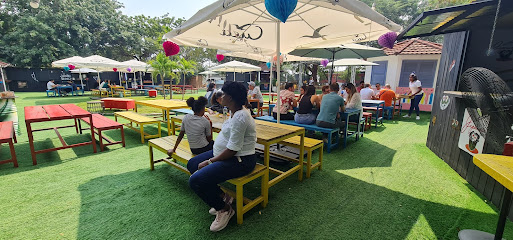
Largo do Bangão (Rua do Brás/Os Mana Belas)
Experience the heart of Luanda at Largo do Bangão, a historical landmark rich in culture and local traditions.
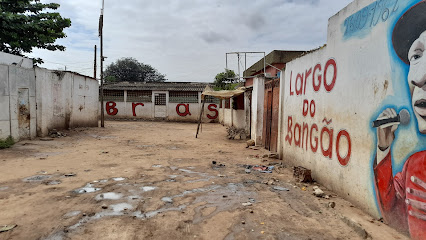
Unmissable attractions to see
Fortaleza de São Miguel
Explore Luanda's oldest defensive structure, offering panoramic views and a glimpse into Angola's colonial past.
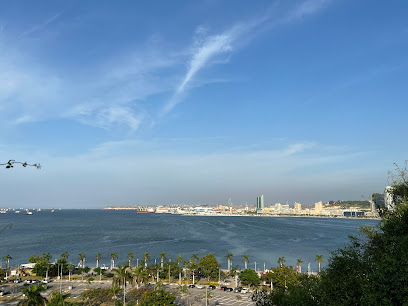
Miramar Park
Escape to Luanda's green heart: Miramar Park offers stunning views, tranquil paths, and a vibrant local atmosphere for all to enjoy.
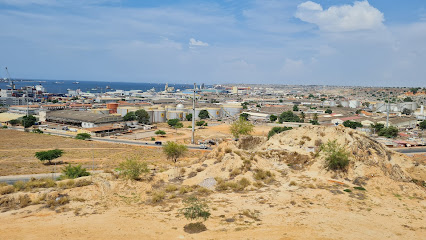
Lighthouse Island
Discover Lighthouse Island in Luanda: A serene escape with stunning views, rich history, and inviting beaches. Perfect for relaxation and exploration.
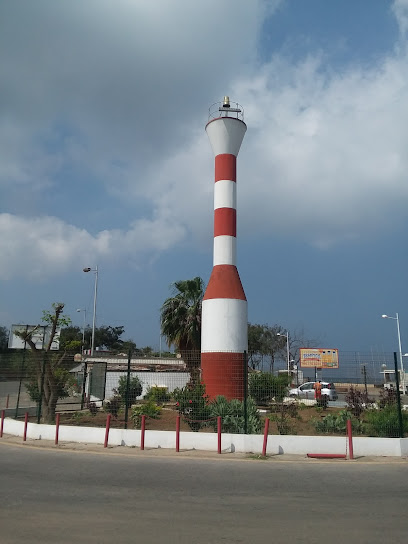
Museum of the Armed Forces
Explore Angola's military history at the Museum of the Armed Forces in Luanda's historic São Miguel Fortress. A journey through conflict and resilience.
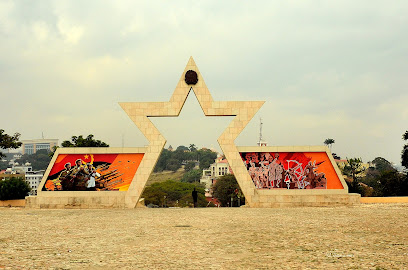
National Museum of Anthropology
Discover Angola's cultural heritage at the National Museum of Anthropology in Luanda, showcasing traditions, artifacts, and the spirit of its people.
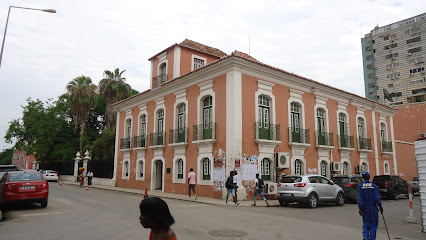
Luanda Magica
Escape the city bustle at Luanda Magica, a serene urban park offering relaxation, cultural experiences, and a touch of nature in Luanda.
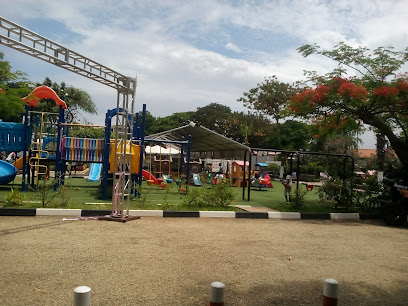
Essential places to dine
Restaurante unidade Africana
Experience authentic Angolan cuisine at Restaurante Unidade Africana in Luanda – a must-visit for food lovers exploring Africa's rich culinary landscape.
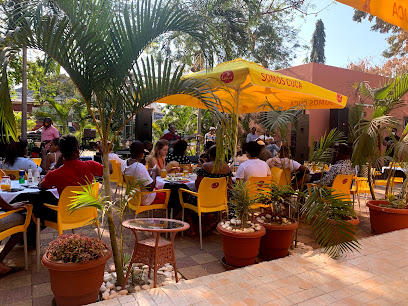
Hamburg's Miramar
Experience the best of local and international cuisine at Hamburg's Miramar in Luanda - where flavor meets hospitality.
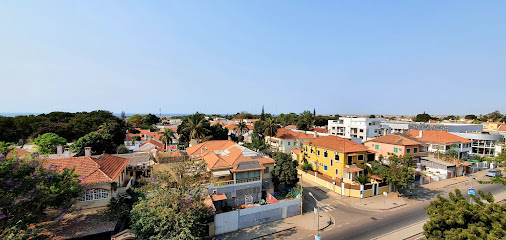
Cervejaria Luanda
Discover authentic Angolan cuisine at Cervejaria Luanda, where vibrant flavors meet warm hospitality in the heart of Angola's capital.
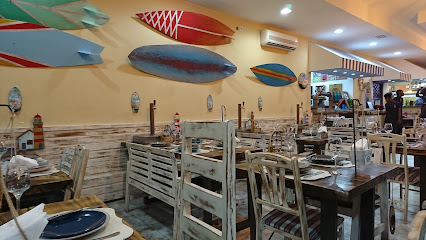
Spot do Bairro: Miramar
Discover authentic Angolan cuisine at Spot do Bairro: Miramar in Luanda, where every dish tells a story of rich flavors and cultural heritage.
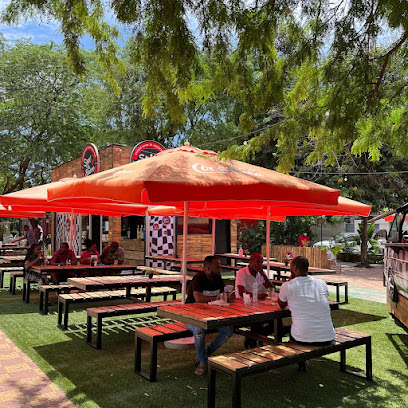
Restaurante Lua Nova
Discover Restaurante Lua Nova in Luanda – where traditional Angolan cuisine meets international flavors in a cozy atmosphere.
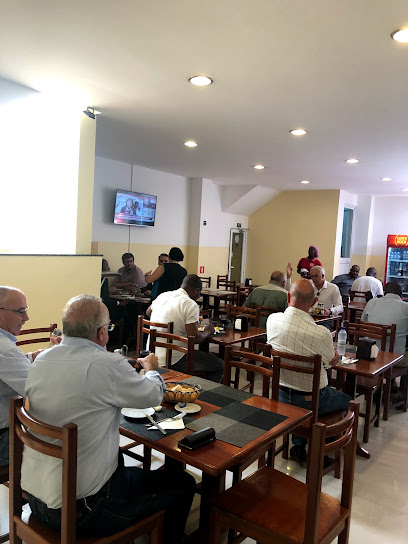
Cafe 63
Discover the vibrant flavors of Luanda at Cafe 63 - where local cuisine meets international tastes in an inviting atmosphere.
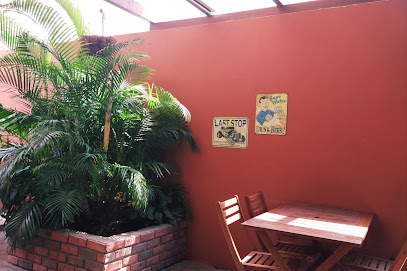
Nossas Coisas
Discover the rich flavors of Angolan cuisine at Nossas Coisas in Luanda - an authentic dining experience awaits you!
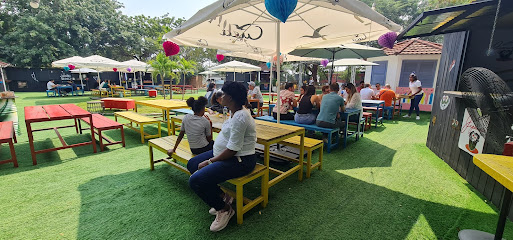
Fomeiros
Discover authentic Angolan cuisine at Fomeiros in Luanda - where every meal tells a story.

Cantinho da Helena sabor
Experience authentic Angolan cuisine at Cantinho da Helena Sabor in Luanda's Miramar district—a must-visit culinary destination.

Prova D’art
Experience Luanda's culinary essence at Prova D’art – where traditional Angolan flavors meet modern dining elegance.

Markets, malls and hidden boutiques
Angomart Miramar
Explore the vibrant flavors of Angola at Angomart Miramar, a grocery store offering fresh produce, local delicacies, and culinary treasures in Luanda.
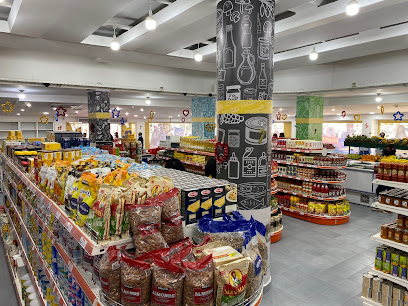
Misand, Lda - Loja Miramar
Explore the vibrant fashion scene at Misand, Lda - Loja Miramar, a must-visit clothing store in Luanda for stylish and unique local apparel.

Beauty fashion boutique
Discover unique fashion at Beauty Fashion Boutique in Luanda, where local style meets international trends for an unforgettable shopping experience.

PEP Angola Luanda Miramar
Explore trendy styles and affordable fashion at PEP Angola Luanda Miramar, your go-to clothing store in Luanda for men, women, and kids.
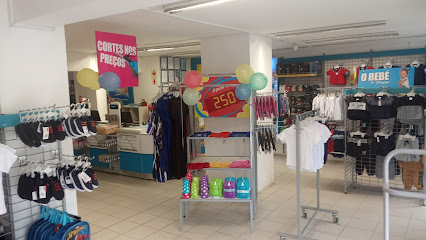
Boutique Vaneid
Discover unique local styles at Boutique Vaneid, Luanda's premier clothing store, offering a blend of contemporary fashion and cultural flair.

MM-Comercial
Discover the vibrant shopping scene at MM-Comercial in Luanda, where beauty, fashion, and home decor meet in a cultural shopping experience.

Ngonda Comercial
Discover the vibrant shopping experience at Ngonda Comercial in Luanda, where local and international brands come together.

Tabacaria Dope
Experience the local tobacco culture at Tabacaria Dope, a must-visit spot in Luanda for enthusiasts and curious travelers alike.
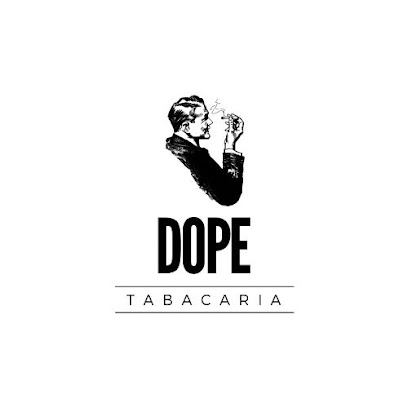
CAMAVO GINGA - COMÉRCIO GERAL, LDA.
Discover unique handcrafted items and local treasures at Camavo Ginga, Luanda's charming store celebrating Angolan culture.

RIZBAN BOUTIQUE
Shop at RIZBAN BOUTIQUE for a stylish mix of local and contemporary fashion in the heart of Luanda, Angola.
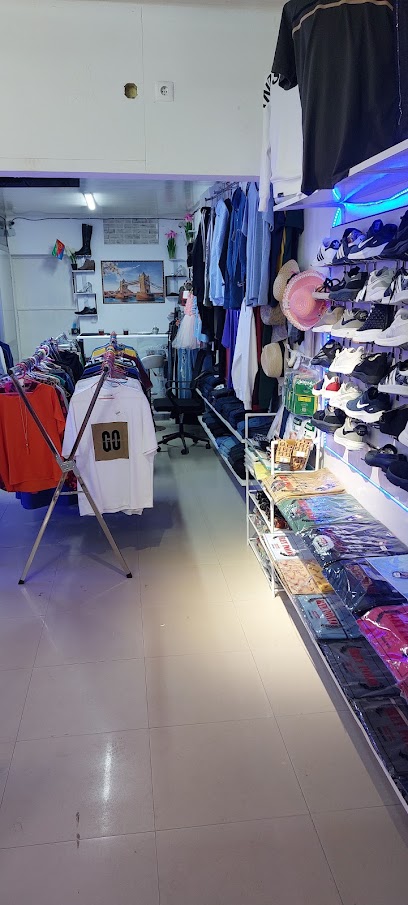
Essential bars & hidden hideouts
BAR BAR
Experience the vibrant nightlife of Luanda at BAR BAR, where local culture meets an electrifying atmosphere and delicious drinks.
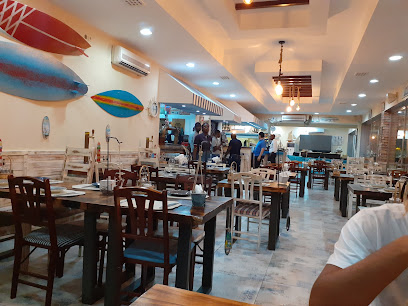
Cervejaria Luanda
Explore the vibrant flavors of Angola at Cervejaria Luanda, a restaurant that embodies the essence of local culinary traditions and hospitality.
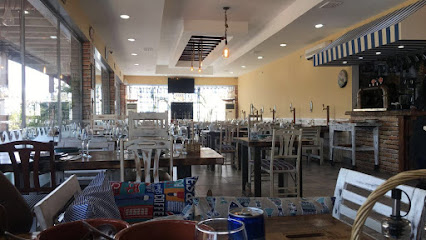
Spot do Bairro: Miramar
Discover the flavors of Angola at Spot do Bairro: Miramar, a lively restaurant in Luanda serving authentic cuisine in a vibrant atmosphere.
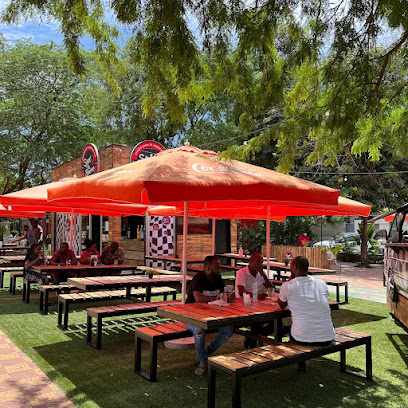
Restaurante Lua Nova
Experience the vibrant culinary scene at Restaurante Lua Nova in Luanda, where local flavors meet international cuisine in an inviting atmosphere.
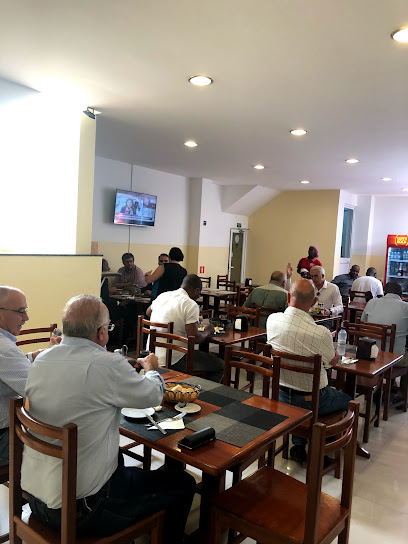
Spot Lounge
Experience the vibrant nightlife of Luanda at Spot Lounge, a trendy bar offering a diverse drink menu and a lively atmosphere.
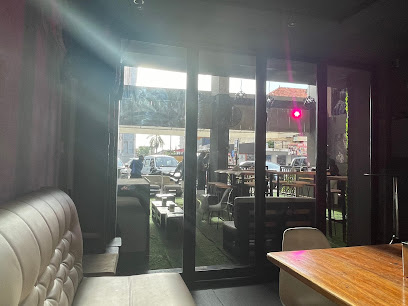
Kianda Lounge Bar
Experience Luanda's vibrant nightlife at Kianda Lounge Bar, where stylish atmosphere meets expertly crafted cocktails in the heart of Angola's capital.

Peri Peri Grill e Bar
Experience the vibrant flavors of Angolan cuisine at Peri Peri Grill e Bar, a lively dining destination in the heart of Luanda.

Garrafeira 1920 Café Lounge
Discover the vibrant atmosphere of Garrafeira 1920 Café Lounge in Luanda, where Angolan hospitality meets local cuisine and lively entertainment.

FLAVIO LOUGE BAR
Experience the vibrant nightlife at Flavio Lounge Bar in Luanda, where lively ambiance meets delicious drinks and local culture.

Tio Alexandre
Experience the vibrant nightlife of Luanda at Tio Alexandre, a bar offering local drinks, live music, and a friendly atmosphere.

Local Phrases
-
- HelloOlá
[oh-LAH] - GoodbyeAdeus
[ah-DAY-oos] - YesSim
[seem] - NoNão
[now] - Please/You're welcomePor favor/De nada
[pohr fah-VOR/deh NAH-da] - Thank youObrigado
[oh-bree-GAH-doo] - Excuse me/SorryCom licença/Desculpe
[kohm lee-SEN-sah/dehs-KOOL-peh] - How are you?Como está?
[KOH-moo ehs-TAH] - Fine. And you?Bem. E você?
[behn/eh voh-SEH] - Do you speak English?Fala inglês?
[FAH-lah een-GLEHS] - I don't understandEu não entendo
[eh-oo now ehn-TEN-doo]
- HelloOlá
-
- I'd like to see the menu, pleaseGostaria de ver o menu, por favor
[goh-stah-REE-ah deh vehr oo MEH-noo/por fah-VOR] - I don't eat meatNão como carne
[now KOH-moo KAH-neh] - Cheers!Saúde!
[SOW-deh] - I would like to pay, pleaseEu gostaria de pagar, por favor
[eh-oo goh-stah-REE-ah deh pah-GAHR/por fah-VOR]
- I'd like to see the menu, pleaseGostaria de ver o menu, por favor
-
- Help!Ajuda!
[ah-JOO-dah] - Go away!Vai embora!
[vah-ee ehm-BOH-rah] - Call the Police!Chame a polícia!
[SHAH-meh ah poh-LEE-see-ah] - Call a doctor!Chame um médico!
[SHAH-meh oom MEH-dee-koo] - I'm lostEstou perdido
[eh-STOH pehr-DEE-doo] - I'm illEstou doente
[eh-STOH doo-EHN-teh]
- Help!Ajuda!
-
- I'd like to buy...Gostaria de comprar...
[goh-stah-REE-ah deh kohm-PRAR] - I'm just lookingEstou só a ver
[eh-STOH soh ah vehr] - How much is it?Quanto custa?
[KWAHN-too KOOSH-tah] - That's too expensiveIsso é muito caro
[EE-soo eh MWEEN-too KAH-roo] - Can you lower the price?Pode baixar o preço?
[POH-deh BAHY-shahr oo PREH-soo]
- I'd like to buy...Gostaria de comprar...
-
- What time is it?Que horas são?
[keh OH-rahs sow] - It's one o'clockÉ uma hora
[eh OO-mah OH-rah] - Half past (10)Meio-dia e meia
[MEH-oo-jee-ah eh MAY-ah] - MorningManhã
[mahn-YAH] - AfternoonTarde
[TAHR-deh] - EveningNoite
[NOY-teh] - YesterdayOntem
[ohn-TEHM] - TodayHoje
[OH-zheh] - TomorrowAmanhã
[ah-mahn-YAH] - 1Um
[oom] - 2Dois
[doysh] - 3Três
[trehs] - 4Quatro
[KWAH-troo] - 5Cinco
[SEEN-koo] - 6Seis
[saysh] - 7Sete
[SEH-teh] - 8Oito
[OY-too] - 9Nove
[NOH-veh] - 10Dez
[dehz]
- What time is it?Que horas são?
-
- Where's a/the...?Onde fica o/a...?
[OHN-deh FEE-kah oo/ah] - What's the address?Qual é o endereço?
[kahl eh oo ehn-DEH-reh-soo] - Can you show me (on the map)?Pode mostrar-me (no mapa)?
[POH-deh moh-SHTRAH-meh/noo MAH-pah] - When's the next (bus)?Quando é o próximo (autocarro)?
[KWAHN-doo eh oo PROH-ksee-moo/ow-toh-KAH-roo] - A ticket (to ....)Um bilhete (para ....)
[oom beel-YEH-teh/PAH-rah]
- Where's a/the...?Onde fica o/a...?
History of Miramar
-
Miramar, a coastal neighborhood in Luanda, emerged during the colonial era when the Portuguese established their presence in Angola in the late 15th century. The area was developed as a residential and administrative district, showcasing Portuguese architectural styles and urban planning. This period marked the beginning of significant cultural exchanges and the introduction of European customs and practices.
-
In the 16th to 19th centuries, Luanda became a major port for the transatlantic slave trade. Miramar, due to its proximity to the coast, was heavily influenced by this grim history. The neighborhood witnessed the arrival and departure of countless enslaved individuals, which profoundly impacted the demographic and cultural landscape of the area. This legacy is reflected in the local music, cuisine, and traditions that blend African and Portuguese influences.
-
Angola gained independence from Portugal in 1975, leading to significant changes in Miramar and the broader Luanda region. The neighborhood experienced social and political upheaval as the country navigated through civil conflict. Despite these challenges, Miramar began to develop a unique identity, with a focus on community resilience and cultural expression, as local residents sought to reclaim and celebrate their heritage.
-
The 21st century brought a wave of urban development to Miramar, reflecting Angola's economic growth following the civil war. New residential buildings, commercial spaces, and infrastructure improvements transformed the neighborhood, attracting both local and foreign investment. This modernization also sparked a revival of interest in cultural heritage, with efforts to preserve historical sites and promote local art and traditions.
-
Today, Miramar is known for its vibrant community life and cultural activities. The neighborhood hosts various events celebrating Angolan traditions, music, and cuisine, making it a focal point for cultural exchange in Luanda. Local markets, art galleries, and music venues contribute to the dynamic atmosphere, where residents and visitors alike engage with the rich cultural tapestry of the region.
Miramar Essentials
-
Miramar is located in the heart of Luanda, making it accessible from various neighborhoods. The most convenient way to reach Miramar is by taxi or rideshare services, which are widely available throughout the city. For those coming from the Luanda International Airport, expect a ride of approximately 15-30 minutes depending on traffic. Alternatively, you can take public transport, such as a minibus (called 'candongue') that covers routes through Luanda, but this may require transfers and could be less comfortable for newcomers.
-
Miramar is relatively small, and while walking is a viable option to explore local attractions, taxis are the most common mode of transportation due to the limited public transport options. Bicycles are not widely used, but some areas have started to implement bike-sharing programs. If you're comfortable, consider using a rideshare app for convenience. Keep in mind that traffic can be congested during peak hours, so plan accordingly.
-
Miramar is generally safe for tourists, but it is important to remain vigilant, especially at night. Avoid walking alone in poorly lit areas, particularly near the docks or the outskirts of the neighborhood. Petty crimes, such as pickpocketing, can occur in crowded places. It is advisable to stay cautious around areas like the city center after dark and to secure your belongings at all times.
-
In case of emergency, dial 112 for police assistance or 115 for medical emergencies. It is recommended to have travel insurance that includes emergency medical coverage. Familiarize yourself with the locations of nearby hospitals and clinics. Pharmacies are available throughout Miramar for minor health issues, and most staff can assist in English.
-
Fashion: Do dress modestly, especially in public spaces; avoid overly revealing outfits. Religion: Do respect local customs. When entering churches, women should cover their heads. Public Transport: Do be polite, and offer your seat to the elderly. Don't eat or drink on public transport. Greetings: Do greet with a handshake and a smile. Avoid addressing people by their first names unless invited to do so. Eating & Drinking: Do try local dishes and accept offers of food graciously. Don't waste food or refuse hospitality, as it is considered offensive.
-
To experience Miramar like a local, visit the local markets for fresh produce and authentic Angolan foods. Engage with the friendly locals, who are often willing to share stories about their culture and traditions. Be sure to check out local music venues or art galleries to get a feel for the vibrant cultural scene. Don't miss trying traditional dishes like Muamba de Galinha (chicken stew) and local drinks such as Cuca beer. If you're interested in nightlife, ask locals for recommendations on popular bars and clubs.
Nearby Cities to Miramar
-
Things To Do in Uíge
-
Things To Do in Cabinda
-
Things To Do in Lambaréné
-
Things To Do in Ongwediva
-
Things To Do in Oshakati
-
Things To Do in Libreville
-
Things To Do in Etosha Village
-
Things To Do in Mbini
-
Things To Do in Bitam
-
Things To Do in Rundu
-
Things To Do in Angolares
-
Things To Do in Ribeira Afonso
-
Things To Do in Trindade
-
Things To Do in Sao Tome City
-
Things To Do in Tsumeb






